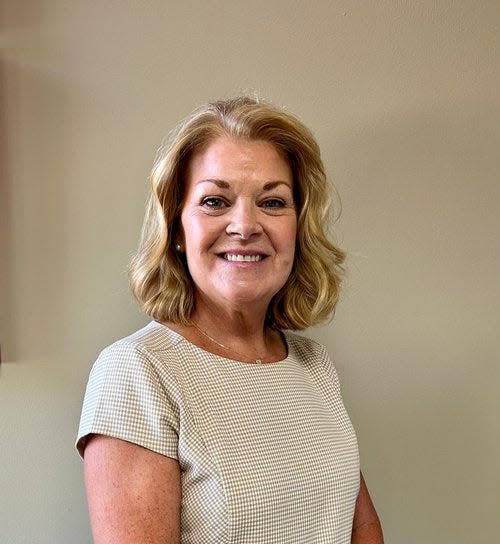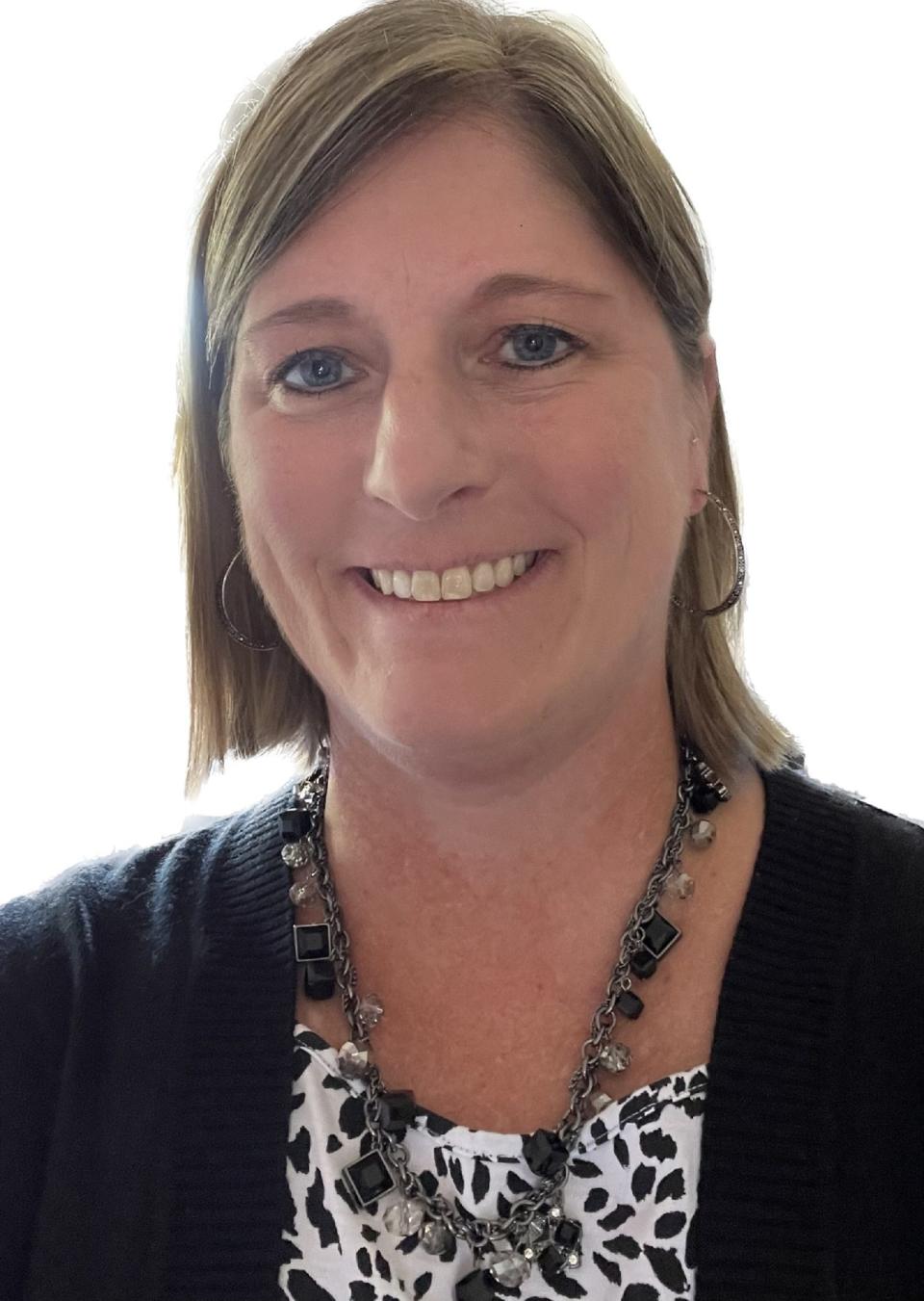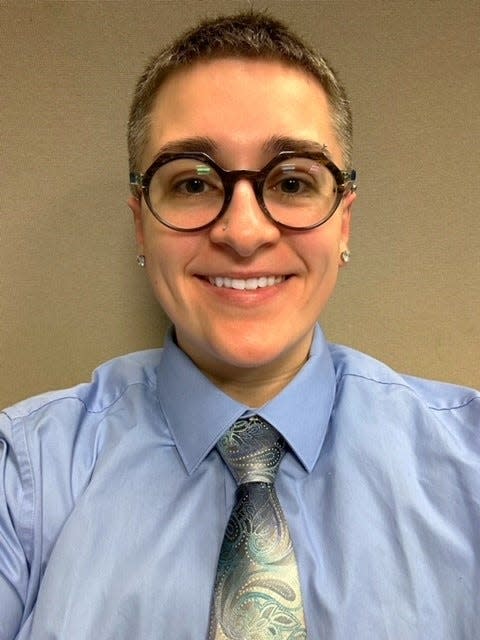Your turn: Human trafficking impacts communities across the country
January has been nationally recognized as Human Trafficking Awareness Month since 2010 to educate the public on what human trafficking is and how both community members and professionals can recognize and prevent this traumatizing and horrific crime.
According to the Department of Homeland Security, human trafficking involves the use of force, fraud, or coercion to obtain some type of labor or commercial sex act.
The Mayor’s Office of Domestic and Community Violence Prevention’s Human Trafficking Task Force is using this month to educate our community as Illinois consistently ranks in the top 10 states for most reported cases of human trafficking.
Chicago has been identified as one of the top cities in the country for reported cases of human trafficking and Rockford continually ranks as one of the top cities in Illinois.
Human trafficking is a widely underreported crime; however, the U.S. Department of State estimates there are currently over 27 million victims at any given time.
Understanding what human trafficking is, what the common warning signs are, and what resources are available inyour community are all ways to help prevent human trafficking.
Reports by UNICEF USA show that human trafficking is estimated to generate over $150 billion in profits annually through forced labor and sex trafficking. While the United Nations reports women account for over 70% of reported victims of human trafficking, it is important to note that anyone can become a victim regardless of age, gender, sexuality, socioeconomic status, or geographic location.
There are many misconceptions about human trafficking which further harm victims and allow traffickers to continue purchasing and selling human beings. Media portrayals of trafficking have led many to believe that victims are trafficked by strangers or are kidnapped and shipped to foreign places. Would it surprise you to know that traffickers are typically known by their victims?
The Department of Justice recognizes that trafficking perpetrators can be romantic partners, family members, friends, acquaintances, or other individuals in the victim’s everyday life. Those perpetrators can act alone or as part of an organized group.
Furthermore, according to a 2018 Human Trafficking Statistical Summary published by the University of Illinois at Chicago Jane Addams School of Social Work, the top venues for sex trafficking in Illinois were hotels, residence-based commercial sex organizations, illicit massage/spa businesses, escort services, and online ads.
You may be wondering why victims of human trafficking don’t just leave. In addition to the physical harm that is threatened and used, traffickers psychologically brainwash their victims to elicit feelings of shame and fear. There may also be distrust of law enforcement and other service providers, including medical professionals.
These tactics can make it so that oftentimes, individuals who are being trafficked do not see themselves as a victim, lack necessary resources or support systems, and may perceive a genuine threat to their safety if they attempt to escape.
Knowing the warning signs is important in identifying individuals who are being trafficked and connecting them to comprehensive services. However, identifying individuals who have been trafficked is not a simple task, as oftentimes there is fear and shame that accompany their experiences.
Many will disconnect from their friends, family, activities, and/or responsibilities. They may suddenly stop attending school or work, appear timid or fearful, or exhibit noticeable changes in behavior. Some may continue attending school or work and make every effort to meet other obligations so as not to draw attention to the situation.
Furthermore, vulnerable individuals can include those who are experiencing homelessness and food insecurity, as well as those having a history of abuse or neglect, substance use disorders, mental health disorders, or domestic violence.
As members of the Mayor’s Office of Domestic and Community Violence Prevention’s Human Trafficking Task Force, we recognize the importance of collaboration to end the crime of human trafficking in our community.
Our multidisciplinary team is comprised of members from Carrie Lynn Children’s Center, DCFS, Juvenile Probation, Adult Probation, Rockford Police Department, Youth Services Network, Winnebago County State’s Attorney’s Office, Winnebago County Sheriff’s Office, and Rockford Alliance Against Sexual Exploitation (RAASE).
We also recognize the importance of supporting and listening to survivors of this heinous crime while working to combat human trafficking at the source. The development of our strategies is driven by our vision of creating a coordinated criminal justice response to human trafficking in which traffickers and purchasers are held accountable.
Our goal is for the rights of survivors to be fully supported through systematic collaboration between service providers and law enforcement.
Human trafficking impacts communities across the country, and the greater Rockford area is no exception. We have a responsibility to our community to learn more about human trafficking and be prepared to utilize the available resources.
To learn more about local efforts at RAASE, visit www.raase.org or call 1-888-823-2364. If you or someone you know has experienced human trafficking, help is available. The National Human Trafficking Hotline provides free, confidential help, 24/7. Visit www.humantraffickinghotline.org, call 1-888-373-7888, or text HELP to 233733.



Angela Brun works in Winnebago County Adult Probation. Cara Williams is with the Illinois Department of Children and Family Services, and Emily Schmidt works in the City of Rockford Mayor’s Office of Domestic and Community Violence Prevention. All three are members of the city's Human Trafficking Task Force.
This article originally appeared on Rockford Register Star: Your turn: Human trafficking impacts communities across the country

